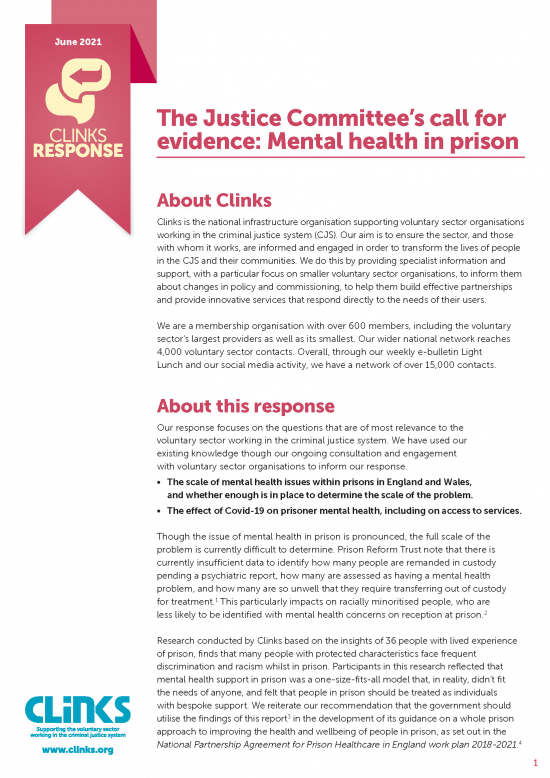
The Justice Committee’s call for evidence: mental health in prison
Clinks submitted evidence to the Justice Committee’s Inquiry into Mental Health in Prison. The response focuses on the questions that are of most relevance to the voluntary sector working in the criminal justice system. We have used our existing knowledge though our ongoing consultation and engagement with voluntary sector organisations to inform our response. The response focusses on the scale of mental health issues within prisons in England and Wales, and whether enough is in place to determine the scale of the problem, and the effect of Covid-19 on prisoner mental health, including access to services. The response provides further information on the appropriateness of prison for those with mental health needs and the mental health care pathway from prison to the community.
Clinks recommends that voluntary organisations delivering mental health services to people in prison need to be seen as strategic partners that prisons consistently engage with, to ensure that they are able to reach and support individuals during and beyond the Covid-19 pandemic. Clinks also recommends that a ‘whole prison’ approach should be taken towards mental health and wellbeing, responding to the individual needs of the whole prison population. The voluntary sector has a strong track record of delivering holistic and trauma-informed services to support women’s mental health in prison, and these services should be commissioned and sustainably funded. Clinks reiterates that Continuity of care from prison to the community is essential to ensure that people leaving prison receive the mental health support that they need. Services such as RECONNECT are a strong example of initiatives to support continuity of care, and the voluntary sector should be fully engaged in the programme, both in terms of strategic input into the roll-out of the programme, and delivery of the programme.